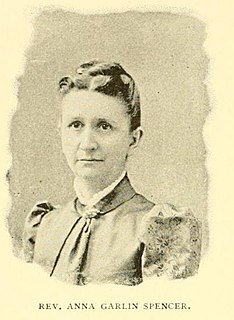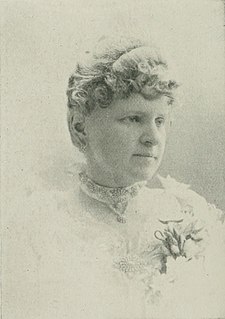A Quote by Jon Stewart
Related Quotes
I once picked up a woman from a garbage dump and she was burning with fever; she was in her last days and her only lament was: My son did this to me. I begged her: You must forgive your son. In a moment of madness, when he was not himself, he did a thing he regrets. Be a mother to him, forgive him. It took me a long time to make her say: I forgive my son. Just before she died in my arms, she was able to say that with a real forgiveness. She was not concerned that she was dying. The breaking of the heart was that her son did not want her. This is something you and I can understand.
Happy is that mother whose ability to help her children continues on from babyhood and manhood into maturity. Blessed is the son who need not leave his mother at the threshold of the world's activities, but may always and everywhere have her blessing and her help. Thrice blessed are the son and the mother between whom there exists an association not only physical and affectional, but spiritual and intellectual, and broad and wise as is the scope of each being.
For a mother the project of raising a boy is the most fulfilling project she can hope for. She can watch him, as a child, play the games she was not allowed to play; she can invest in him her ideas, aspirations, ambitions, and values - or whatever she has left of them; she can watch her son, who came from her flesh and whose life was sustained by her work and devotion, embody her in the world. So while the project of raising a boy is fraught with ambivalence and leads inevitably to bitterness, it is the only project that allows a woman to be - to be through her son, to live through her son.
As her sons have seen her: the mother in patriarchy: controlling, erotic, castrating, heart-suffering, guilt-ridden, and guilt-provoking; a marble brow, a huge breast, an avid cave; between her legs snakes, swamp-grass, or teeth; on her lap a helpless infant or a martyred son. She exists for one purpose: to bear and nourish the son.
There are those of us who are always about to live. We are waiting until things change, until there is more time, until we are less tired, until we get a promotion, until we settle down / until, until, until. It always seems as if there is some major event that must occur in our lives before we begin living.
Like the guy I was dating. White, liberal, educated. I went to meet his family and I think that they probably didn't know they had a problem with it until he walked in with me. And they definitely had issues. Mom had issues with it. Could not, didn't want to see her son. And I don't think she had anything against me. But it was about her son bringing me home. And I felt that for the first time. I was like, 'Wow, that's deep.' It's really simple: I don't fit their picture.
The thing about superheroes is that they don't have problems, right? A feminist hooker superhero wouldn't have to worry about assault, or pregnancy, or poverty, or disease, or eating and shelter, or police. In order to make her a superhero, you have to divorce her of the very context that makes her story possible. You have to gloss over the trauma.
At the door , she made him promise to go without goodbyes .She closed the door on him . Laila leaned her back against it , shaking against his pounding fists , one arm gripping her belly and a hand across her mouth , as he spoke throughout the door and promised that he would come back for her . She stood there until he tired , until he gave up , and then she listened to his uneven footsteps until they faded , until all was quiet , save for the gunfire cracking in the hills and her own heart thudding in her belly , her eyes , her bones .
I am always behind the shopper at the grocery store who has stitched her coupons in the lining of her coat and wants to talk about a 'strong' chicken she bought two weeks ago. The register tape also runs out just before her sub-total. In the public restroom, I always stand behind the teen-ager who is changing into her band uniform for a parade and doesn't emerge until she has combed the tassels on her boots, shaved her legs, and recovered her contact lens from the commode.



































